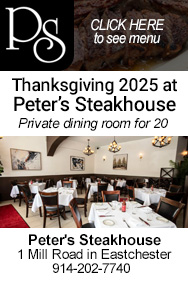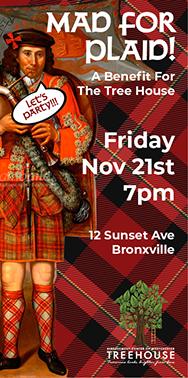Richard Magat, Man in Manhattan: Miles of Museums

By Richard Magat
Sep. 9, 2015: Looking outside my window, I see the standard lampposts, with street names and names of cross streets, but there is one addition--the words "Museum Mile."
The array, on Fifth Avenue between the Metropolitan Museum of Art at East 82nd Street and (until recently when it was extended to 110th Street to include the new Africa Center) East 105th Street, traditionally began with El Museo del Barrio, between East 104th and 105th Streets, which celebrates the work of Puerto Rican and Latin American artists and has an important collection of carved and wooden figures of saints.
The crowning repository is the Metropolitan Museum of Art, between East 80th and 84th Streets, which houses more than two million objects. A few blocks north stands the architectural wonder that is Frank Lloyd Wright's circular Solomon R. Guggenheim Museum.
Not all of Manhattan's notable museums are on Museum Mile. Prominent are the American Museum of Natural History, across Central Park, the Frick Collection, the Museum of Arts and Design, the Studio Museum in Harlem, the Lower East Side Tenement Museum, the Museum of the Moving Image, and the National Lighthouse Museum.
There are two museums named "new," The New Museum in the Bowery and the Neue Galerie on Museum Mile. The New Museum features avant-garde works such as Freedom, a "SWAT Team of Teletubbies that stand guard in a Zuccotti-like plaza," as described in the New Yorker. The Neue Galerie, housed in an ornate mansion at East 86th Street, just closed an exhibition by the Austrian painter Gustav Klimt, one of whose major works, The Woman in Gold, drew crowds that wound around the block.
Like other institutions, museums have specialties and rivalries. When the Metropolitan rejected the millionaire heiress Gertrude Vanderbilt Whitney's fine collection of American art, she established a museum of her own, which recently moved from its East 75th location (east of the Museum Mile, it may be noted), which was acquired by the Met. The new Whitney, relocated near the Hudson River in the Meatpacking District, designed by the noted Italian architect Renzo Piano, features six floors of shapely galleries, four open-air terraces, screening spaces, and dining areas. One of its opening shows, America Is Hard to See (a line from a Robert Frost poem) has received enthusiastic reviews.
Vast as its museum trove may be, New York has brilliant rivals--from Washington, DC, with its array of Smithsonian museums, to Paris, with the Louvre and Pompidou, Chicago, with the Art Institute of Chicago, the Vatican, with its immense collection in its many museums, and Mexico City, with its multitude of museums.
All very well and good, except they are hardly accessible by bus or subway.
Government & History Directory
Bronxville is a quaint village (one square mile) located just 16 miles north of midtown Manhattan (roughly 30 minutes on the train) and has a population of approximately 6,500. It is known as a premier community with an excellent public school (K-12) and easy access to Manhattan. Bronxville offers many amenities including an attractive business district, a hospital (Lawrence Hospital), public paddle and tennis courts, fine dining at local restaurants, two private country clubs and a community library.
While the earliest settlers of Bronxville date back to the first half of the 18th century, the history of the modern suburb of Bronxville began in 1890 when William Van Duzer Lawrence purchased a farm and commissioned the architect, William A. Bates, to design a planned community of houses for well-known artists and professionals that became a thriving art colony. This community, now called Lawrence Park, is listed on the National register of Historic Places and many of the homes still have artists’ studios. A neighborhood association within Lawrence Park called “The Hilltop Association” keeps this heritage alive with art shows and other events for neighbors.
Bronxville offers many charming neighborhoods as well as a variety of living options for residents including single family homes, town houses, cooperatives and condominiums. One of the chief benefits of living in “the village” is that your children can attend the Bronxville School.
The Bronxville postal zone (10708, known as “Bronxville PO”) includes the village of Bronxville as well as the Chester Heights section of Eastchester, parts of Tuckahoe and the Lawrence Park West, Cedar Knolls, Armour Villa and Longvale sections of Yonkers. Many of these areas have their own distinct character. For instance, the Armour Villa section has many historic homes and even has its own newsletter called “The Villa Voice” which reports on neighborhood news.
Link to Village of Bronxville One Square Mile Monthly Newsletter
Village of Bronxville Administrative Offices
337-6500
Open 9:00am - 4pm excluding holidays and weekends
Bronxville Police Department
337-0500
Open 24 hours
Bronxville Parking Violations
337-2024
Open 9:00am - 4pm excluding holidays and weekends
Bronxville Fire Deparment
793-6400
















